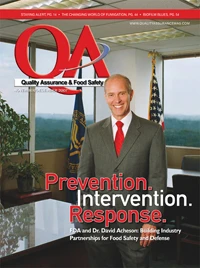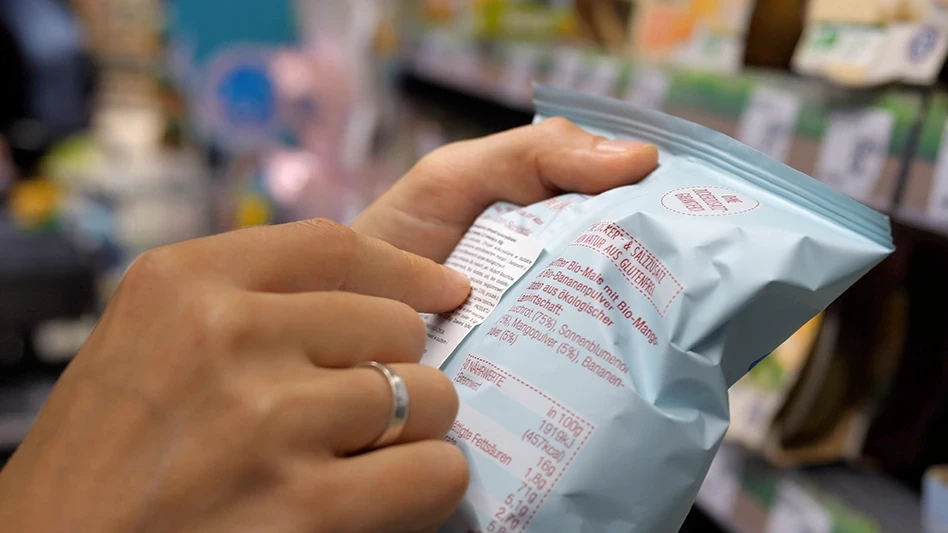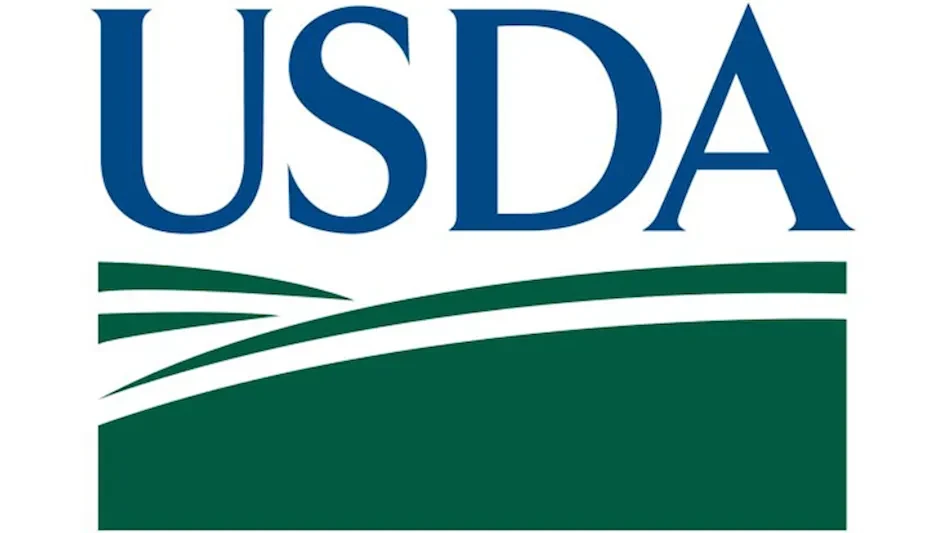Regular readers of QA magazine have come to expect a cover profile featuring one of your own — a processing plant that has implemented best practices in quality, safety or security. The profile in this issue veers slightly from this standard, featuring Assistant Commissioner for Food Protection Dr. David Acheson, who, though a member of the U.S. Food and Drug Administration, is no less one of our own.
As described in the article, my visit to the FDA building just outside Washington, D.C., gave me a new perspective of the people vs. regulatory-body nature of this agency. At the same time, this visit, in conjunction with recent industry events and the research conducted for articles in this issue, caused me to reflect on the nature of our industry in general, particularly as it relates to the concepts of prevention and response — proactive and reactive action.
The timing of my visit could not have been better planned: Acheson’s group was in the final stages of creation of the new Food Protection Plan, USDA was announcing its own “new, ongoing and upcoming actions to protect public health”; a group of top industry leaders was preparing to meet at the first Cooperating for Food Safety (CFS) symposium; and FDA was presenting an overview of its mission and plans for food protection and reorganization at the Worldwide Food Expo.
While these initiatives all show positive action toward increased protection of America’s food, I can’t help but also see them as indicating the industry’s and FDA’s identification as a sort of fire department: employing reactive efforts to stop the fire after it is started, rather than setting up smoke detectors for prevention.
Even the news releases show the current reactive nature of the industry. Note USDA’s headline: “FSIS Takes Aggressive Actions to Combat E. coli ...” and CFS’s opening sentence “At a time when one in four Americans suffer from foodborne illness each year …”
This is not new. On its Web site, USDA presents a “Timeline of Events Related to E. coli O157:H7” beginning with the 1993 outbreak “in the Northwest” and continuing through October 1995 (www.fsis.usda.gov/Science/Ecoli_O157_Timeline). The interesting item of note is the extent of action taken, not just by USDA, but across the industry, after each major outbreak. And CFS is not the first major cooperative effort. In 2003, the beef industry held a summit to define and document industry practices to reduce E. coli O157:H7 shortly after a multi-state outbreak.
This is not to say our industry does not take preventive steps. Though required only of certain product processors, HACCP has become a food safety standard across the industry, aimed at prevention and control at critical hazard points; R&D efforts in microbiological testing are ongoing and innovative; and the cover profiles presented in each issue of QA focus on the quality and safety efforts and initiatives of plants across the nation.
But as the challenges of our industry continue to increase, we need to do more.
As Acheson said, it must be a partnership, with industry taking on the brunt of prevention focused on “building safety into products right from the start.” It is one more challenge for our industry; one that is not only critical to the protection of America’s food, but to the reputation and brand of each and every food producer. Simply witness the fate of Topps Meat for proof.
The author is Staff Editor of QA magazine.

Explore the December 2007 Issue
Check out more from this issue and find your next story to read.
Latest from Quality Assurance & Food Safety
- FSIS to Host Virtual Public Meetings on Salmonella Framework
- Climate-Smart Soybeans Enter U.S. Market
- Yoran Imaging Introduces Thermal Imaging-Enabled System for Induction Seal Inspection and Analysis
- GDT Highlights Food Safety Solutions for Food Processing and Packaging Facilities
- FSIS Issues Public Health Alert for Ineligible Beef Tallow Products Imported from Mexico
- Wolverine Packing Co. Recalls Ground Beef Products Due to Possible E. Coli Contamination
- McDonald’s USA, Syngenta and Lopez Foods Collaborate to Help Produce Beef More Sustainably
- Divert and PG&E Announce Interconnection in California to Address Wasted Food Crisis





